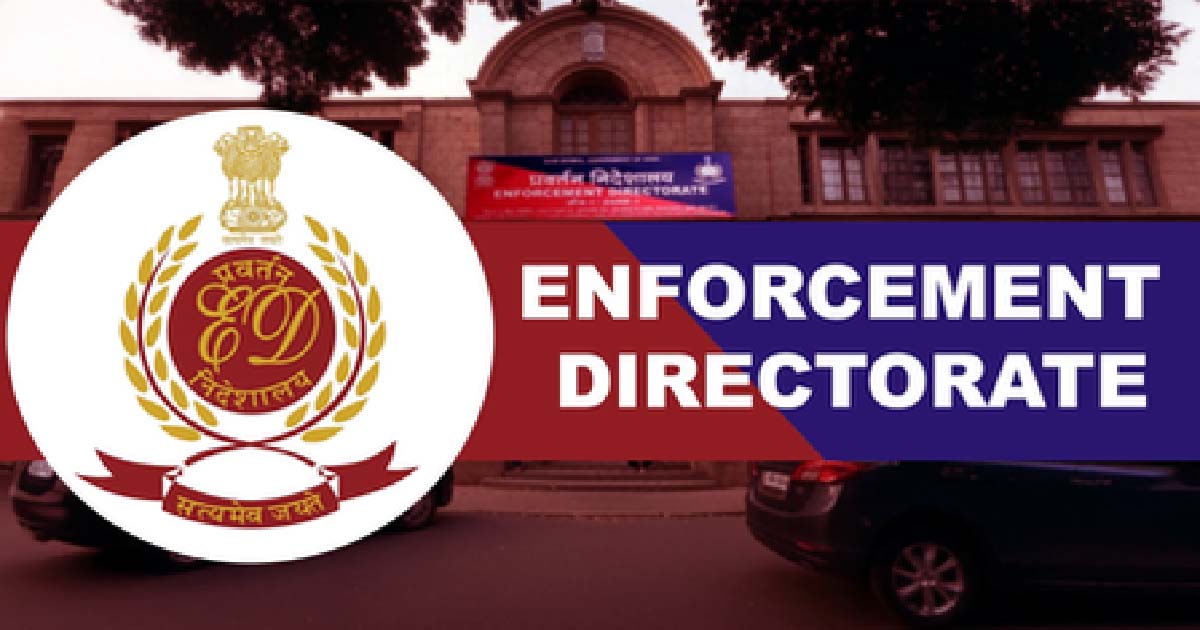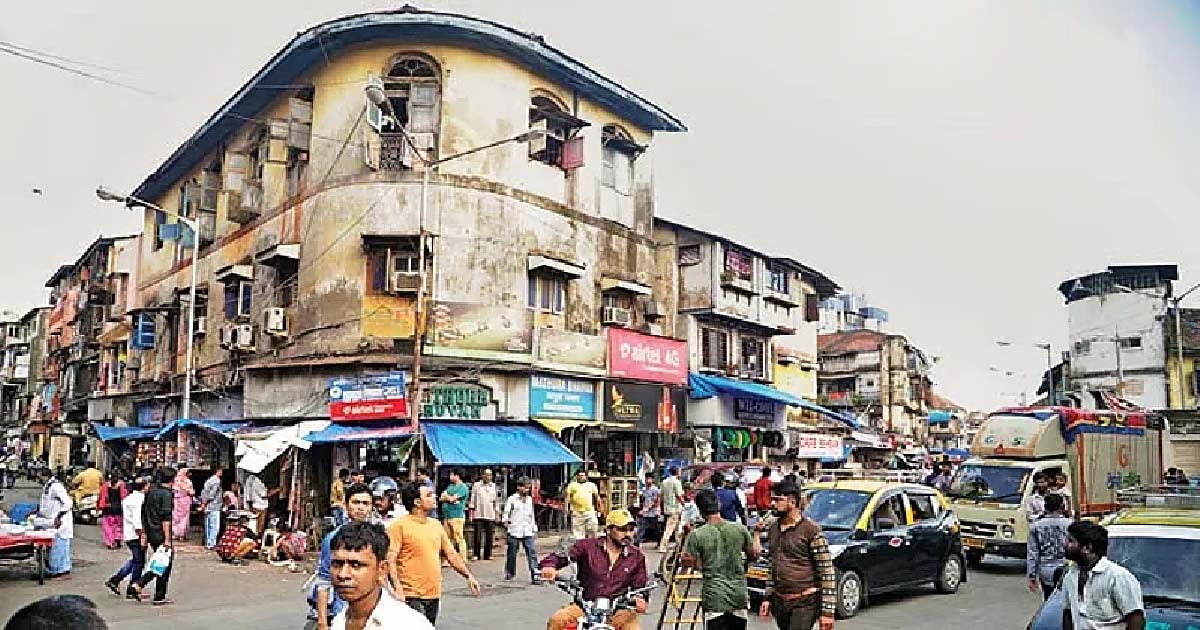Politics
BJP mocks CM Siddaramaiah on caste census advice to Centre

Bengaluru, May 1: The Karnataka BJP, on Thursday, criticised Chief Minister Siddaramaiah on his caste census remarks, saying that the exercise done by the Congress-led government was a model for how not to conduct the census.
Earlier, CM Siddaramaiah said that his government was fully prepared to extend any guidance to the Union government on the caste census.
R. Ashoka, the Leader of Opposition in the Legislative Assembly, stated, “Chief Minister Siddaramaiah, your statement suggesting that Karnataka’s model should be adopted for the caste census is truly laughable. A report whose original copy has gone missing, which lacks even the signatures of the secretaries, where applications were filled by school children paid five to ten rupees per form, where houses with dogs were skipped during enumeration, and which even after ten years remains unaccepted – your caste census report stands as a textbook example of how not to conduct a caste census.”
“Your claim that the BJP has always opposed the caste census is an outright lie. In 2010, the then Leader of Opposition in the Lok Sabha, the late Sushma Swaraj, had formally conveyed to the UPA government that the BJP supported, including caste enumeration in the 2011 census. The BJP had also supported the unanimous resolution passed in Parliament on the matter,” Ashoka pointed out.
However, instead of conducting a proper caste census, the then Congress government carried out a flawed Social-Economic Caste Census – 2011 (SECC-2011). Like Karnataka’s caste census, this too suffered from poor planning and ineffective execution, leading to its complete failure. Despite spending crores of rupees, the findings were never officially released. This reveals the Congress party’s true commitment towards the caste census, Ashoka stated.
“The BJP has never misused the caste census as an electoral weapon. When in power, we demonstrated commitment by deciding to carry out the caste census. We did not indulge in petty politics by shedding crocodile tears while in opposition and ignoring the issue when in power. This reflects our genuine dedication to social justice. BJP’s only concern regarding the caste census has always been that it should not be misused for political attacks,” Ashoka underlined.
“The caste census that the Central government is now set to conduct will be carried out in a highly transparent, scientific, and purposeful manner – not manipulated for political gain as your Congress government did by twisting data to suit your needs,” Ashoka stated, addressing CM Siddaramaiah.
Karnataka’s caste census process serves only as an example of how not to conduct a caste census; there are no aspects worth emulating from it, he reiterated.
Welcoming the decision for caste census by the centre, CM Siddaramaiah stated on Wednesday, “Just as the BJP initially mocked our five guarantee schemes and later adopted them, the Modi government’s decision to implement a caste census proves that Congress’ policies are rooted in public welfare.
“The Karnataka government’s caste-based Social, Economic, and Educational Survey is a robust model. We are fully prepared to extend any guidance or support the Union government may need,” the CM said.
CM Siddaramaiah further stated, “Our government wholeheartedly welcomes the Union government’s decision to conduct a caste census along with the national population census. At this moment, I urge the Union government to also carry out a social, economic, and educational survey alongside the census. In Karnataka, we didn’t just conduct a caste census – we also gathered data on the social, economic, and educational status of communities. Based on this data, we have taken steps to revise and expand the current reservation policy. I hope the Union government will now follow through with this process as well.”
Crime
ED attaches Rs 127.3 cr shares linked to Alchemist group in PMLA case

New Delhi, Oct 31: The Enforcement Directorate (ED) has provisionally attached shares worth Rs 127.3 crore linked to two hospitals – Alchemist Hospital and Ojas Hospital in Panchkula – as part of an ongoing money laundering probe involving the Alchemist Group, the agency said on Friday.
The properties are beneficially owned by businessman Karan Deep Singh. The order was issued by the ED’s Delhi Zonal Office under the Prevention of Money Laundering Act (PMLA), 2002, on October 30, 2025.
The action is connected to a probe into alleged large-scale financial fraud and misappropriation of public funds by the group’s promoters and associated companies.
The ED initiated its investigation based on an FIR registered by Kolkata Police, which was later taken up by the Central Bureau of Investigation (CBI), ACB Lucknow, under Sections 120-B and 420 of the IPC against Alchemist Township Pvt. Ltd., Alchemist Infra Realty Pvt. Ltd., their directors, and former Rajya Sabha MP and group chairman Kanwar Deep Singh.
“The case pertains to a large-scale criminal conspiracy to defraud investors by illegally raising funds through fraudulent Collective Investment Schemes (CIS), offering unusually high returns, and/ or making false promises of allotting plots, flats, and villas,” ED said in its press note.
The agency claims that Alchemist Holdings Ltd. and Alchemist Township India Ltd. raised approximately Rs 1,848 crore through these schemes, siphoning the money for unauthorised use.
“ED investigation revealed that the misappropriated funds were systematically layered through complex financial transactions involving group entities of the Alchemist Group, with the intent to conceal the illicit origin of the funds,” the agency said.
“These tainted proceeds were ultimately used for the acquisition of shares and the subsequent construction of Alchemist Hospital and Ojas Hospital. The transactions were deliberately structured to project these assets as legitimate, thereby disguising the Proceeds of Crime (POC),” it further added.
According to the ED, the shares of Alchemist Hospital and Ojas Hospital are held to the extent of 40.93 per cent and 37.23 per cent, respectively, by M/s Placid Estate Pvt. Ltd., a company beneficially owned by Kanwar Deep Singh.
“The assets of Alchemist Hospital and Ojas Hospital as held by M/s. Placid Estate Pvt. Ltd, valued at Rs 127.3 crore, has been attached in the current provisional attachment order,” it said.
In addition, the ED noted that it had previously arrested Kanwar Deep Singh on January 12, 2021.
A prosecution complaint was filed on March 2, 2021, followed by two supplementary complaints in July 2024 and September 2025. So far, assets worth Rs 365.42 crore have been attached in the case through earlier orders, including shares held by Sorus Agritech Pvt. Ltd. in the same hospitals.
Further investigation is underway.
Business
Mumbai Infra News: MHADA Selects Firm For Kamathipura Redevelopment Project, Awaits State Nod

Mumbai: In a major step toward transforming one of Mumbai’s oldest and most congested neighbourhoods, the Maharashtra Housing and Area Development Authority (MHADA) has selected AATK Constructions for the long-pending redevelopment of Kamathipura in South Central Mumbai. The project, spread over 34 acres, has now moved to the state government’s high-power committee (HPC) for approval before it goes to the state cabinet for final clearance.
MHADA’s Mumbai Building Repairs and Reconstruction Board (MBRRB) had received two bids, one from AATK Constructions and another from J Kumar Infraprojects. After a detailed evaluation of technical and financial aspects, MHADA declared AATK the successful bidder and forwarded the proposal to the HPC for consideration.
“This urban renewal project will be a historic one,” said MLA Amin Patel, who has been advocating for Kamathipura’s redevelopment for more than a decade. “Bringing landlords, tenants and the government to a consensus was not easy, but this plan will finally offer a dignified living space to thousands.
The Kamathipura Redevelopment Project covers 8,001 tenements, including 6,625 residential and 1,376 commercial units, spread across 943 cessed buildings and involving 800 landowners. Most of these structures are over a century old and beyond repair, with many plots measuring only 50 sq metres, making independent redevelopment unfeasible.
Under the proposed plan, eligible residential occupants will receive 500 sq ft carpet area flats in new towers up to 57 storeys high, while non-residential tenants will get 225 sq ft spaces. Sale buildings will rise to 78 storeys, creating a mixed-use skyline that combines residential, commercial and sale components.
The redevelopment is expected to replace dilapidated tenements with modern high-rise structures equipped with amenities and better infrastructure. Landowners will also benefit from additional entitlements based on plot sizes, with larger plots earning proportionally higher returns.
Chief Minister Devendra Fadnavis, while addressing the Assembly earlier, acknowledged the significance of the project, noting that he had worked ‘for the people of Kamathipura.’ The state government had earlier entrusted the redevelopment responsibility to MHADA’s MBRRB under the Construction and Development (C&D) format after private developers expressed disinterest due to the complex ownership patterns.
Once approved by the HPC and cabinet, the long-awaited transformation of Kamathipura is expected to finally take off, turning one of Mumbai’s most dilapidated localities into a modern, livable urban zone.
Crime
Navi Mumbai: Copper Wires Stolen From Streetlight Poles, 2,880 Meters Missing; One Thief Nabbed Near Thane-Belapur Road

Navi Mumbai: After receiving several complaints from residents about non-functional streetlights, the Navi Mumbai Municipal Corporation (NMMC) discovered that copper wires from dozens of streetlight poles along the Vashi Link Road and Thane-Belapur Highway had been stolen. The thefts had plunged several stretches into darkness, raising safety concerns among commuters.
During intensified inspection rounds, workers from M/s Chaitanya Electricals, the agency responsible for streetlight maintenance, caught two men red-handed on October 27 stealing copper wires from poles near Kokilaben Hospital on Thane-Belapur Road. While one suspect fled, the other was detained with 48 meters of stolen wire. A formal FIR was lodged at the Turbhe Police Station.
According to NMMC’s Electrical Department, each streetlight pole contains around 48 meters of copper wire. Preliminary checks revealed that wires had been stolen from about 60 poles—approximately 2,880 meters in total. The large-scale thefts had disrupted power supply to several streetlights, particularly under the Belapur Flyover and near bus stops in Vashi village, where citizens had frequently complained of poor lighting and unsafe conditions.
Taking the matter seriously, City Engineer Shirish Aradwad and Executive Engineer Pravin Gade directed teams to increase surveillance and carry out frequent patrols in vulnerable areas. The swift action helped in nabbing one of the culprits, who was handed over to the Turbhe Police. Further investigation is underway.
An NMMC official said, “Theft of copper wires not only causes huge financial losses but also endangers public safety. We have stepped up monitoring and appeal to citizens to immediately report any suspicious activity near streetlight poles.”
Residents have been urged to contact the civic body’s toll-free helplines 1800-222-309 or 1800-222-310 to report such incidents and assist in maintaining the city’s infrastructure.
-

 Crime3 years ago
Crime3 years agoClass 10 student jumps to death in Jaipur
-

 Maharashtra1 year ago
Maharashtra1 year agoMumbai Local Train Update: Central Railway’s New Timetable Comes Into Effect; Check Full List Of Revised Timings & Stations
-

 Maharashtra1 year ago
Maharashtra1 year agoMumbai To Go Toll-Free Tonight! Maharashtra Govt Announces Complete Toll Waiver For Light Motor Vehicles At All 5 Entry Points Of City
-

 Maharashtra1 year ago
Maharashtra1 year agoFalse photo of Imtiaz Jaleel’s rally, exposing the fooling conspiracy
-

 National News1 year ago
National News1 year agoMinistry of Railways rolls out Special Drive 4.0 with focus on digitisation, cleanliness, inclusiveness and grievance redressal
-

 Maharashtra12 months ago
Maharashtra12 months agoMaharashtra Elections 2024: Mumbai Metro & BEST Services Extended Till Midnight On Voting Day
-

 National News1 year ago
National News1 year agoJ&K: 4 Jawans Killed, 28 Injured After Bus Carrying BSF Personnel For Poll Duty Falls Into Gorge In Budgam; Terrifying Visuals Surface
-

 Crime1 year ago
Crime1 year agoBaba Siddique Murder: Mumbai Police Unable To Get Lawrence Bishnoi Custody Due To Home Ministry Order, Says Report












